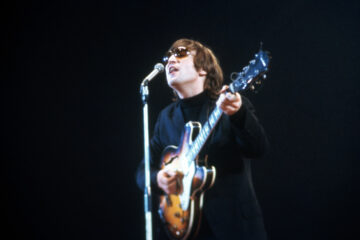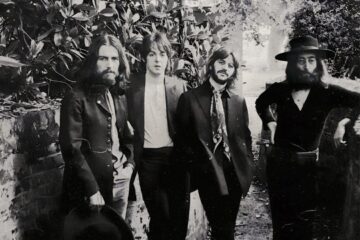When The Beatles announced their breakup in 1970, many of their fans felt like they’d been wounded. As they were trying to ease their way through their recovery, John Lennon released a song that tore off the proverbial band-aid.
The song was “God” from his first post-Beatles solo album John Lennon/Plastic Ono Band, which was released at the end of that tumultuous year. And as much as he might have been writing it for fans of the Fab Four to try and get them to accept the new reality, the song also seems to have been Lennon’s effort to convince himself it was time for a new approach to his work and his life.
He Was the Walrus
Much of John Lennon/Plastic One Band is devoted to John Lennon exorcising the demons of his younger days, including his hardscrabble upbringing that included parents rarely involved in his life, one of whom (his mother) died suddenly. According to Lennon, he didn’t go into “God” with the intent of even bringing up The Beatles. It just came to him once he got rolling, as he explained in his explosive interview with Rolling Stone in 1970:
“I don’t know when I realised I was putting down all these things I didn’t believe in. I could have gone on, it was like a Christmas card list—where do I end? Churchill, and who have I missed out? It got like that and I thought I had to stop. … I was going to leave a gap and say, just fill in your own, for whoever you don’t believe in. It just got out of hand. But Beatles was the final thing because it’s like I no longer believe in myth, and Beatles is another myth. I don’t believe in it. The dream’s over. I’m not just talking about The Beatles is over, I’m talking about the generation thing. The dream’s over, and I have personally got to get down to so-called reality.”
Of course, Lennon was making this case for self-reliance while he was in the midst of the primal scream therapy of Dr. Arthur Janov. It was a conversation with Janov about God that actually got the ball rolling on the song. Lennon then began joining that intro together with bits from a few other songs that he started.
“God” benefits from a stunning recording, which includes incredibly drumming from Ringo Starr, who comes up with fill after fill in the closing section, and gospelized piano from Billy Preston. But it’s Lennon’s soulful emoting of the lyrics that ultimately renders the song so powerful.
Exploring the Lyrics to “God”
God is a concept by which we measure our pain, John Lennon begins in “God.” And then, he repeats it (I’ll say it again) in case anybody missed it the first time around. Lennon had to know that the opening line would take people aback. But if they thought that was jolting, it was nothing compared with what he still had to say in the song.
Lennon then goes into his list of non-beliefs. It might seem like a bit of a misdirection, but it actually connects quite well to the first line. After all, that opening could be seen as a negation of any kind of religious belief. Following that up with all these other things which no longer hold any sway on him is an understandable connection.
In that list, Lennon mixes in religious systems and figures with a few choice pop culture icons. For those who don’t know, that fellow named Zimmerman that he name-checks after Elvis is none other than Bob Dylan (Zimmerman is Dylan’s surname by birth). Lennon had never shied away from admitting the debt he owed to both those icons, but now he was leaving them behind.
It’s hard to say what statement of Lennon’s was more shocking to Beatles fans. The way the music drops away as he sings, I don’t believe in Beatles / I just believe in me / Yoko and me, creates an indelible moment. But then he also equates the Fab Four experience to a dream. I was the Walrus / But now I’m John, he sings to drive the point home.
Only at the end does Lennon try to break it a little more gently: And so, dear friends / You’ll just have to carry on. That was also the message he was trying to process himself as he said farewell to the biggest band in history. “God” made it clear there was no turning back.



